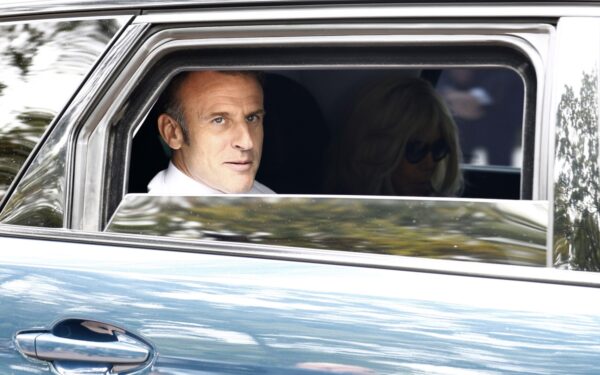Whatever one’s feelings about French politicians, Jacques Chirac was right about a lot of stuff. For all the misdemeanors of the former French President, whose death was announced today, he now gets to lay his head proudly on the pillow of world history.
Consider the evidence. The Gallic rebel stood up and predicted that invading Iraq would be a monumental bloodbath with heavy karmic aftershocks. When he did it, in 2003, France was the sick man of Europe – stuck in self-inflicted crises and existential morosity.
But history hasn’t delivered its full verdict on this man’s uncanny clairvoyance. The much bigger story surrounding Jacques Chirac concerns his secret reasons for pushing so hard for the rapid and at times arguably shambolic enlargement of the EU into a 28-state empire.
This is the aspect of Chirac’s legacy that shows what a fascinating split personality lay behind the killer smile.
On the surface, Chirac liked to keep his image and messages simple. The tall ladies man was twice minister, twice prime minister, mayor of Paris for 18 years, twice president of France for a total of 12 years. Chirac was a veritable chef de clan dominating the conservative RPR party for almost 40 years. Unlike any rival at the time or since, he commanded an almost tribal adoration across rural France, as could be seen at agricultural fairs where every year, crowds of farmers cheered him.
Amazingly, off camera and tucked up inside inside the Elysée, what Jacques Chirac hid from the public, and even some of his own entourage, was the depth of his profound obsession for anthropology and ancient civilization. He was a secret intellectual whose deep knowledge stunned the academics constantly being called in through side-entrances to show him their skulls and artefacts. Specializing in Asian civilization, he even had the French embassy in Tokyo sending him VHS videos of sumo wrestling matches.
During his first presidency in the mid-nineties – a period of anarchy in Eastern Europe and victorious complacency in America, Chirac was convinced that China waking up from its 1000 year sleep, would transform the 21st Century in ways his clueless peers couldn’t conceive.
He carried a special briefcase to all EU summits. In it was a folder containing photos of ancient art, texts and iconography.
Whenever the debate got bogged down in nitty gritty, he would discreetly open his case and thumb through his folder. Observers at the time wondered what on earth it was. But this secret file was his own personal compass, his way of focusing back on the bigger picture facing future generations.
Europe, he believed, had no choice. Its ambient political banter was irrelevant. The EU had to enlarge rapidly, confederate and build a global-bidding super economy to deal with this the rise of the East. As a simple matter of negotiating power, it had to get ready for a world the Chinese would dominate. For although Chirac was a respectful admirer of Chinese civilisation, he knew that being a conquistador by stealth and trade policy, modern China would divide and rule a European continent of weak, 20th century nation states.
That’s why French policy during those decisive years between 1995 and 2007, doggedly put EU enlargement first – often at Chirac’s own political peril. All he saw was new century of old empires coming, with mighty China firmly on top. Maybe it was too complex a vision to express out loud. Whatever his reasons for being so secretive, Chirac preferred to remain the beer-drinking people’s man – arguing the merits of Europe in terms that ordinary people could translate into pocket-book money and local interest.
If you still don’t believe he was capable of such modesty and genius, next time you’re in Paris, consider visiting Chirac’s masterpiece on Quai Branly, the one giant clue he did leave behind. It’s a vast museum – almost a humanist temple, entirely dedicated to the ancient tribal art of Oceania, Africa and North America – explaining through masks, statues and totem poles, the inspiring power of spirituality on all the supposedly lesser civilizations. If Jacques Chirac left behind a legacy, it’s there in this unique museum. It’s rooted in the idea that we in the West must be wary of our claims of exceptionalism. The rest of the world is not as primitive as we like to think.
In fact, Chirac understood that our own sense of civilisation becomes stronger, clearer and more determined by studying and respecting our rivals.
Yes, he was a globalist, a humanist and every other liberal, cosmopolitan insult you can think of. But he had an uncanny knack of always winning the long game.



